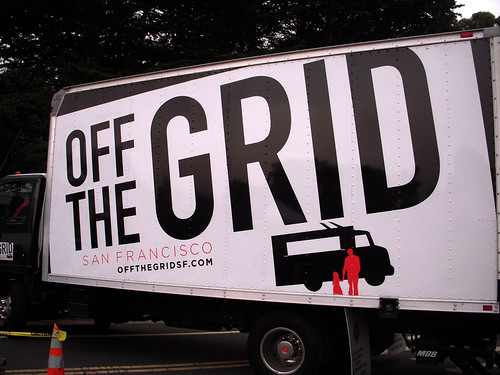A minimalist lifestyle is the most effective and easy way to
free yourself of debt and the trap of
material possession, but people have different strategies to live lives that
are less dependent on materialism. One lifestyle is referred to as getting off
the grid. This means adopting a lifestyle where you are not in contact with
society and you are self-sustaining when it comes to three major factors: waste
disposal, electricity and water.
The “grid” refers to the way in which our houses are usually
set up: on a power grid where we (who can afford it) receive water and
electricity without a second thought of where it comes from. From above,
suburbia also looks like a grid and many people feel that this lifestyle that
is separated from nature and contributes to the detriment of the ecology is not
for them. The simple truth is that living on the grid is not contributing to a
sustainable future for the planet as waste disposal, generating power (if done
with fossil fuels, like most power is generated at the moment) and food
production are the major contributors to environmental destruction.
Of course, people have very different reasons for deciding
that they want to live such a lifestyle and there are just as many ways to go
about it. On off-grid.net one can find
information about all the difference aspects of off-grid living. It also allows
for people to connect with each other so they don’t have to go at it alone.
Anyone who has seen Into the Wild and other movies where people take themselves
away from the hustle and bustle in favour of nature will realize that there are
dangers to going at it alone.
Some who live off the grid don’t separate themselves from
society as much as someone who decides to travel to Alaska, for example. It
simply means living in such a way that you are not dependent on the water,
electricity, waste disposal and housing of suburban society. Some even stay in
mobile homes, which as you don’t have to buy your own land and you can simply
pick up and move in a heartbeat, but those who settle with a home can have
other advantages such as growing their own food, settling into one place,
sharing their lives with animals and living more comfortably as they are pretty
much set once they have organized ways to tend to their needs.
Some will save to start their lives off the grid and others
sell all their possessions they will no longer be needing off the grid to start
over. Living off the grid is often associated with frugal living as people
either have simpler jobs, jobs they can do over the internet or only work on
improving their surroundings and making the most of what they have. There is no
drive for better material possessions as few people will see your house and the
most important things would be to have it sturdy and functioning. When you have
to create your own power and water sources you are also far less likely to
waste power on things like a TV and other gadgets and will save it for cooking,
hot water and lights.
 |
| Image of a van promoting off-grid living, by axmai |
People find that this way of life gets them in touch with
what really matters: their families, enjoying their time and working towards a
better future instead of contributing to the destruction. Some have found a
simpler yet more purpose-driven life living close to nature and not spending
hours every day in a work environment that they hate to come home to a house that
does not satisfy their need for relaxation and the things that are truly
important (and aren’t “things” at all).
Nice Blog
ReplyDeleteGreen living
Living off the grid
Emergency preparation